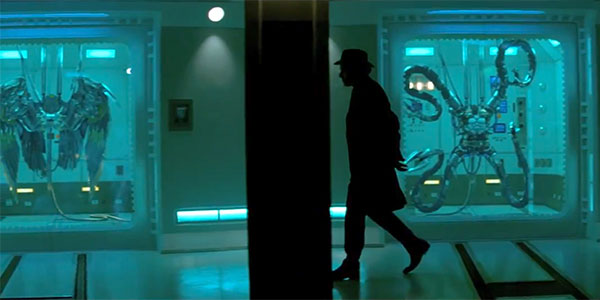Filmmaker Marc Webb burst onto the feature film scene in 2009 after an incredibly busy career as a music video director with (500) Days Of Summer, a bittersweet young romance that put Webb on the Hollywood map and made him a director to watch. He was courted after that to direct The Amazing Spider-Man (2012), a reboot of the Marvel Comics character that starred Andrew Garfield as the title character and Emma Stone as Gwen Stacy. While the film retread some of the same ground as Sam Raimi’s earlier Spider-Man movies, it provided a different enough take on Spidey to earn itself and Webb generally positive reviews.
The Amazing Spider-Man 2 (2014), however, was a different story, with a muddled script that seemed too focused on building out a shared Spider-Man universe than concentrating on the characters as Webb had done the first time. The film became the lowest-grossing Spider-Man movie to that point (although it still did reasonably well), and plans for a third one were scrapped in favour of a new deal allowing Marvel Studios to restart the franchise yet again.
Den Of Geek US spoke with Marc Webb while he was promoting his new film, The Only Living Boy In New York.
Looking back on the Spider-Man experience, what are your feelings on it now? It seemed at the time that you were caught between bigger forces on those, especially the second one.
I understand why people think that, but those are my movies. It is your responsibility as a director to make those. Everything that happens is your problem. I was never pushed around. A lot of smart people had a lot of strong opinions about things, but it was my movie. Both of them were. It’s more complicated, simply because there’s a lot on the line. There are a lot of factors that need to be taken into consideration. But I had a really good time making those movies. They’re very difficult. I would approach them differently now than I did, but I feel really grateful for it and pretty uncynical about it. These people are all my friends, you know what I mean? Everybody wanted to make a great movie.
My impression of it is, I think, probably more nuanced, obviously, than other people’s, but I had a great time. I think it was a very difficult time for Sony because of the hack and because Marvel wanted the character back, and there are all sorts of corporate imperatives, but that didn’t have a huge impact on how we made the movie. Maybe it accelerated the timeline, which made things difficult, but that’s something I accepted. That’s the nature of what those movies are.
Have you seen the new one?
I haven’t. I’m desperate to. I’ve just been bouncing back and forth to New York. I saw Wonder Woman, which I loved, and I really want to see it. I think Tom Holland’s great.
You said you might have approached the franchise differently that you did. How?
Well, I think I’d just take more time making those movies. But that goes into accepting, when you sign up for it, making clear what you’re willing to accept. I didn’t know how to build a movie like that when I was starting off. So I think I’d be more careful about that now.
Did you have ideas for the third one?
Yeah, we were talking about the Sinister Six. They were going to make a Sinister Six movie before we did the third one. But I wanted…Chris Cooper was going to come back and play the Goblin. We were going to freeze his head, and then he was going to be brought back to life. And then there was that character called The Gentleman. We had some notions about how to do it, but I think maybe we were thinking too far ahead when we started building in those things. But it was a fun exercise. I look back very fondly on those days.
Aside from Chris’ head, did you have a villain you might have wanted to bring in?
Well, that was going to be the main villain. He was going to come out and lead the Sinister Six. We had talked about Vulture a little bit too, actually….

